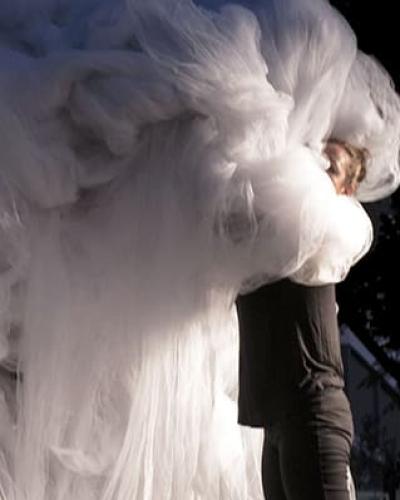The Society for the Humanities at Cornell University seeks interdisciplinary research projects that reflect on philosophical, aesthetic, political, ecological, religious, psychoanalytical, and cultural understandings of sensation as a concept and experience that lies at the heart of the humanities and the arts.
Selected Fellows will collaborate with the Director of the Society for the Humanities, Timothy Murray, Professor of Comparative Literature and English and Curator of the Rose Goldsen Archive of New Media Art, an international research center on new media. The Senior Invited Fellows will be Lauren Berlant, George M. Pullman Professor of English, University of Chicago, Saba Mahmood, Associate Professor, Department of Anthropology, University of California at Berkeley, and Susanna Siegel, Edgar Pierce Professor of Philosophy, Harvard University.
We invite considerations of how sensation might be inherent to the humanities across historical periods, disciplinary boundaries, geographic territories, and social contexts. From the earliest writings on poetics to more recent theories of mood, affect, and feelings, how might sensation shape the aesthetic experience? How have theories of the sensing body and the sensational shaped the performing and the visual arts? Has sensation been equally important to theories of poetry as to tragedy? Is the “literature of sensation” primarily a nineteenth-century phenomenon of the Anglophone novel or does it stretch across the globe and ages? To what extent do discourses of sensibility and sentiment across the arts intersect with histories of research in human physiology and explorations in global culture? Some scholars might consider how artistic, theatrical, and musical experiments capitalize on the senses of touch, smell, sound, and taste.
Sensation is central to philosophical and theoretical traditions. While the philosophy of mind/perception reflects on the nature of sensory content and how concepts organize sensation, epistemological and phenomenological approaches to sensation examine the role of perception as well as the impact of the senses. Applicants might also want to consider how theories of the sublime span the disciplines when researching mathematical and dynamic approaches to sensation. Important to criticism in the arts, literature, and music, the sublime also influences more recent psychoanalytic approaches to trauma just as earlier studies of hysteria and neurosis have focused on the sensory. And while recent anthropological studies critique psychoanalytic theories of sensation for false understandings of indigenous culture, other approaches consider how factors of religion, gender, race, and class shape the regulation of sensation. Could the “intersubjective” nature of sensation even destabilize liberal theories of human agency?
Scholars also might consider the sensations of discomfort, anxiety, and vulnerability, all of which touch on recent studies in precarity, whether related to poverty, the environment, or social struggle. Touch itself, from the mythical/mystical power to heal by touch to the refined touches of the sculptor or keyboard player, might also be an object of inquiry. In the virtual realm, recent experimentations with sensor technologies open the realm of sensation to questions of the human, the animal, and the machine, just as “the sensational” subtends popular culture and mass media.

